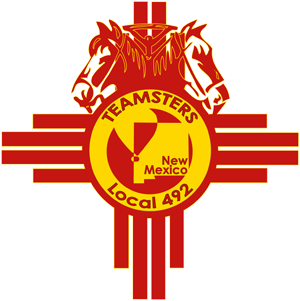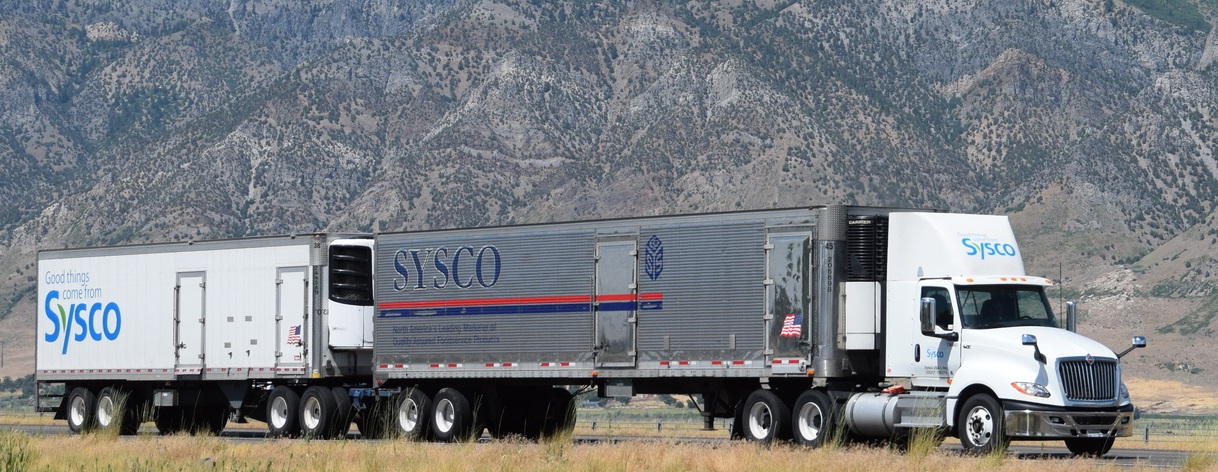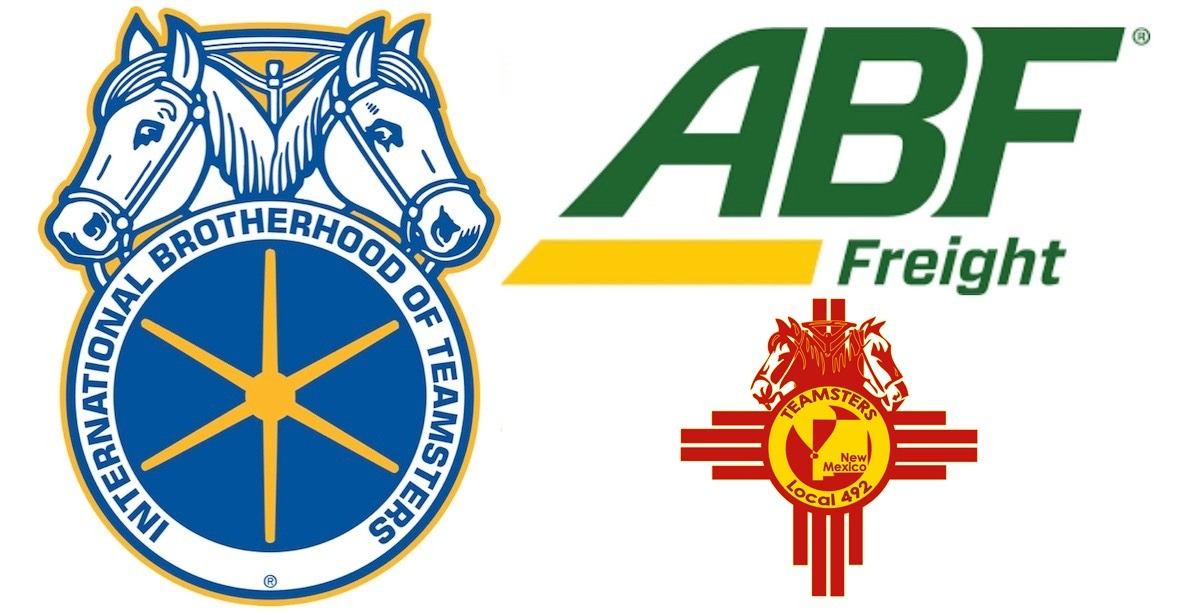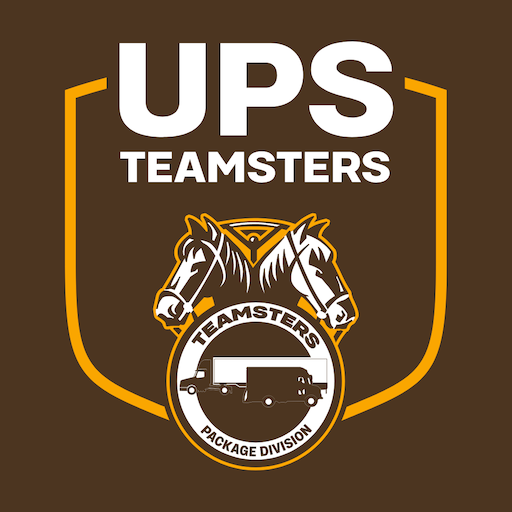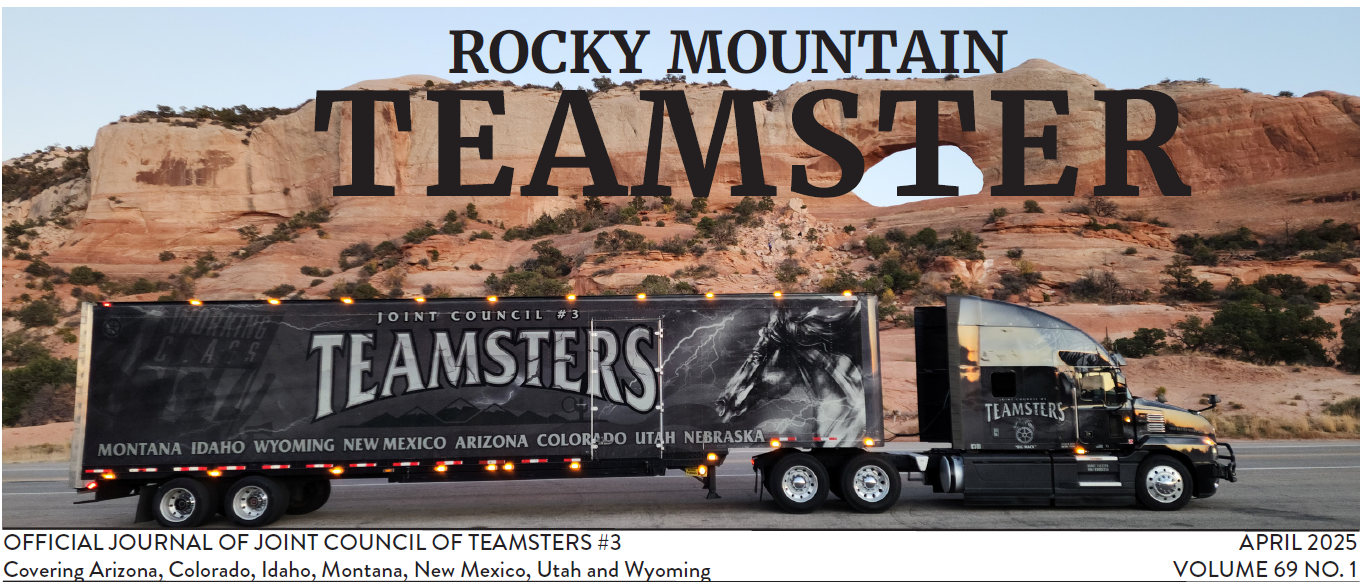What is a “card count neutrality agreement,” and why is it more democratic than an election?
When a non-union employee approaches the Union for help, the Union will always give free advice on how the individual can possibly fix this issue they are having. Those that seek help are typically not only interested in their own personal issue, but will often ask if there is a possibility to unionize their work site. The Union will usually then look into how much interest there is in the “bargaining unit.”
Despite what you made read or “hear”, Unions are not out there trying to force workers to join the Union. Unions simply fill the void by giving the workers a powerful voice at work and Unions answer the call when requested by the employees for help dealing with an employer that may not be treating them properly. It’s not about dues, it’s about helping workers have a collective voice. Yes, the dues/service fees are necessary because how else can any organization help anyone without funding. When looking in to the situation of the possible bargaining unit of the employee lodging a complaint, sometimes the Union will find out that there are only a select few employees having issues with the employer. In those cases, the Union just tries to advise the individual on their specific issue. If there seems to be a lot of interest with a majority of the employees in the unit, the Union will petition the NLRB for an election. If the company agrees to card check neutrality, the employer is agreeing not to interfere in the employees’ decisions about whether to join the Union, and the employees and the Union agree not to disrupt the workplace through strikes, picketing or boycotts. Unfortunately, the company will rarely grant card check neutrality because they do not want to give up any amount of control they have to their workers.
Card Check and Neutrality
What is a “card count neutrality agreement,” and why is it more democratic than an election? Growing numbers of workers and their employers are forming collective bargaining relationships by using “card count neutrality” or “card check neutrality” agreements. Through card count, the employer agrees to recognize the Union as the official bargaining agent of the employees once a third party verifies that a majority of the entire group of employees has signed Union membership cards. The employer then agrees to begin negotiating for a first contract as soon as it recognizes the Union, avoiding prolonged legal delays. Neutrality means that the employer agrees not to interfere in the employees’ decisions about whether to join the Union, and the employees and the Union agree not to disrupt the workplace through strikes, picketing or boycotts. In most card count neutrality agreements, binding arbitration is included to quickly resolve conflicts.
Wouldn’t an election be more democratic?
The card count is an election, and Union authorization cards are the “ballots.” Employees elect to have the Union represent them by signing an agency agreement, the same way people usually appoint their representatives, such as attorneys. It might seem that a National Labor Relations Board-sponsored election would be the most democratic means of deciding the question of unionization. But these elections for Union representation, characterized by intense anti-union campaigns, are not like other types of elections because of the inherent coercive power an employer holds over an employee, i.e., the power to deprive a person of his or her livelihood. This imbalance of power is unparalleled in any other type of election in our society. Even if the employer does not expressly threaten employees with adverse consequences if they support the Union, employees can’t help but be aware of this possibility any time an employer makes known his opposition to unionization.
Recent laws against sexual harassment illustrate this workplace dynamic. These legal decisions recognize that it can be inherently coercive for a supervisor to say or do certain things in the workplace (such as ask a subordinate out on a date) which if done in another context might be considered quite innocuous. Because a supervisor has power over a subordinate, the subordinate implicitly understands that the supervisor may retaliate in some way if a request is refused. With respect to unionization, the Supreme Court observed as long ago as 1940, that “[s]light suggestions” of employer preference have a “telling effect among men who know the consequences of incurring that employer’s strong displeasure.”1
According to one of the world’s premier human rights organizations, American Union representation elections under the National Labor Relations Act do not adequately account for this imbalance of power, and thus fail to provide a fair democratic process for workers to exercise their right to form a Union. A recent report from Human Rights Watch entitled Unfair Advantage: Workers’ Freedom of Association in the United States Under International Human Rights Standards, lays out four major problems with U.S. labor law:2
1. Millions of workers are excluded from protection when exercising their right to associate. “Workers who fall under these exclusions can be summarily fired with impunity for seeking to form and join a Union. Even where the employer does not fire them, workers’ requests to bargain collectively can be ignored.”
2. Protections for workers covered by the law are inadequate. U.S. labor law covering elections fails to meet international human rights standards because it allows actions with coercive effects to be used against employees. “Under U.S. law, employers and consultants have refined methods of legally “predicting”--as distinct from unlawfully threatening--workplace closures, firings, wage and benefit cuts and other dire consequences if workers form and join a trade Union.”
3. When the laws are broken, enforcement is weak. “[T]he board’s authority to seek injunctions to halt employers’ unfair labor practices, however egregious and destructive of workers’ rights such practices might be, is only discretionary and is rarely used by the NLRB... [A]buses should carry a meaningful price so that remedies and sanctions have a deterrent value.” An employer who illegally fires key Union supporters often succeeds in breaking an organizing drive. Even if the fired employees succeed after years of litigation in proving that their employer was motivated by anti-union animosity, all they will collect is back pay minus any interim earning or what the NLRB thinks they should have been able to earn from substitute employment. Many employers consider this a cheap price to pay for breaking a Union organizing drive.
4. The NLRB election process is full of legal delays. “Long delays in the U.S. labor law system confound workers’ exercise of the right to freedom of association.”
• Before the election: “[T]he election can be held up for months by employer-initiated disputes over which workers should be eligible to vote in the election as part of the ‘appropriate bargaining unit.’”
• After the election: “...[T]he employer can then undertake what is called a ‘technical refusal to bargain’ to obtain judicial review of the NLRB’s decision... A technical refusal to bargain forces workers and the NLRB to launch a new case, this time an unfair labor practice complaint against the employer’s refusal to bargain. The new case often requires years more to resolve in the courts.” By contract, our nation stood transfixed as the outcome of the last presidential election was delayed only several weeks.
In a Union representation election, the choice the workers make is whether they will be represented at all and, if so, by what Union. They are deciding about representation at the bargaining table in direct negotiations with their employer. If an employee were to sue his or her employer, the law would never tolerate interference by the employer in the worker’s choice of an attorney. Yet, in the case of an NLRB election, the procedures used for workers to select their representative at the bargaining table allow employers to use their tremendous inherent advantages to campaign for a no vote.
A fair and constructive alternative
It has not always been so. The Wagner Act of 1935 (the National Labor Relations Act) established the NLRB. The original standard for a fair recognition process was that the debate about whether or not to establish a Union was exclusively among the employees. Any anti-union statement by an employer was considered an unfair labor practice. For many years before the enactment of the NLRA and persisting after it was passed, there were several means of determining majority support among employees: counting the membership cards, examining a roster of members, essentially “any other suitable method.” Employers later began to insist on NLRB elections because it gave them an opportunity to campaign against the Union and to use the court system to delay recognizing and negotiating with Unions.
The NLRB election process is often called the “traditional” method, but it is much more recent than card count and has not been the way that most collective bargaining relationships in the United States have been established, both before and after the NLRA came into existence. Card count neutrality agreements are the fair and appropriate method of determining if employees wish to be represented by a Union. They permit workers to express their wishes without undue influence from their employer. They allow the parties to avoid the extended, often bitter, and wholly unfair election process. Human Rights Watch observed, NLRB elections too often involve intense, acrimony-filled campaigns marked by heated rhetoric and attacks on the motives of both employers and Union advocates. The bitterness of a representation campaign can poison chances of a mutually beneficial bargaining relationship.
Experience demonstrates that where workers and employers can agree to use card checks that genuinely reflect workers’ free choice, with safeguards against coercion by management, by Union representatives or by coworkers, they can combine the benefits of freedom of choice and a mutually respectful relationship that carries over into collective bargaining. Public policy should encourage the use of voluntary card-check agreements as an alternative means of establishing workers’ majority sentiment and collective bargaining rights.
The Dunlop Commission Report also noted “card check agreements build trust between Union and employer and avoid expending public and private resources on unnecessary election campaigns. Such agreements are a classic example of potential or former adversaries creating a win-win situation for themselves.”3
Recent card count neutrality agreements
In recent years, more employers and Unions have returned to the use of card count agreements as a way to respect employees’ right to organize and establish positive management-labor relations. At the University of Washington, the Administration agreed to recognize the Graduate Student Employee Action Coalition immediately upon verification of signed cards of a majority of graduate employees. Other employers who have agreed to card count neutrality agreements include: Kaiser Permanente, U.S. Steel, AT&T, Safeway, Anheuser-Busch, UPS and Hilton hotels. Other types of employees using such agreements include: Nurses, doctors, electricians and other skilled tradespeople, auto workers, communications workers, hotel and casino employees. Card-count recognition has long been recognized as a valid method for determining employees’ choice not only under the National Labor Relations Act, but under the Railway Labor Act and public sector collective bargaining laws. In Canada, the law in nine of the ten provinces and that governing federal labor relations not only permits but requires this form of recognition.
And employer neutrality and card count procedures are fully consistent with the NLRA, which declares that it is the policy of the United States “[to encourage] the practice and procedure of collective bargaining and [to protect] the exercise by workers of full freedom of association, self-organization, and designation of representatives of their own choosing, for the purpose of negotiating the terms and conditions of their employment or other mutual aid or protection.”4
Notes
1. International Association of Machinists v. NLRB, 311 U.S. 72 (1940).
2. All quotations from Human Rights Watch are from Unfair Advantage: Workers’ Freedom of Association in the United States Under International Human Rights Standards, August 2000.
3. Commission on the Future of Worker-Management Relations, “Report and Recommendations,” 1994, p. 20.
4. National Labor Relations Act, sec. 7, 29 U.S.C. sec. 157.
If you are still not convinced, read the list of benefits below that most Americans take advantage of, (even management) that would not exist if not for Unions making them happen.
Did you know that labor unions made the following 36 things possible?
- Weekends off
- All breaks at work, including your lunch breaks
- Paid vacation
- Family & Medical Leave Act (FMLA)
- Sick leave
- Social Security
- Minimum wage
- Civil Rights Act/Title VII - prohibits employer discrimination
- 8-hour work day
- Overtime pay
- Child labor laws
- Occupational Safety & Health Act (OSHA)
- 40-hour work week
- Workers' compensation (workers' comp)
- Unemployment insurance
- Pensions
- Workplace safety standards and regulations
- Employer health care insurance
- Collective bargaining rights for employees
- Wrongful termination laws
- Age Discrimination in Employment Act of 1967 (ADEA)
- Whistleblower protection laws
- Employee Polygraph Protection Act (EPPA) - prohibits employers from using a lie detector test on an employee
- Veteran's Employment and Training Services (VETS)
- Compensation increases and evaluations (i.e. raises)
- Sexual harassment laws
- Americans With Disabilities Act (ADA)
- Holiday pay
- Employer dental, life, and vision insurance
- Privacy rights
- Pregnancy and parental leave
- Military leave
- The right to strike
- Public education for children
- The Equal Pay Acts of 1963 & 2011 - requires employers to pay men and women equally for the same amount of work.
- Laws ending sweatshops in the United States
Do We Really Need Unions In America?What Do Unions Do For Me?
Article Written By Teamsters492.org Webmaster, Trey White
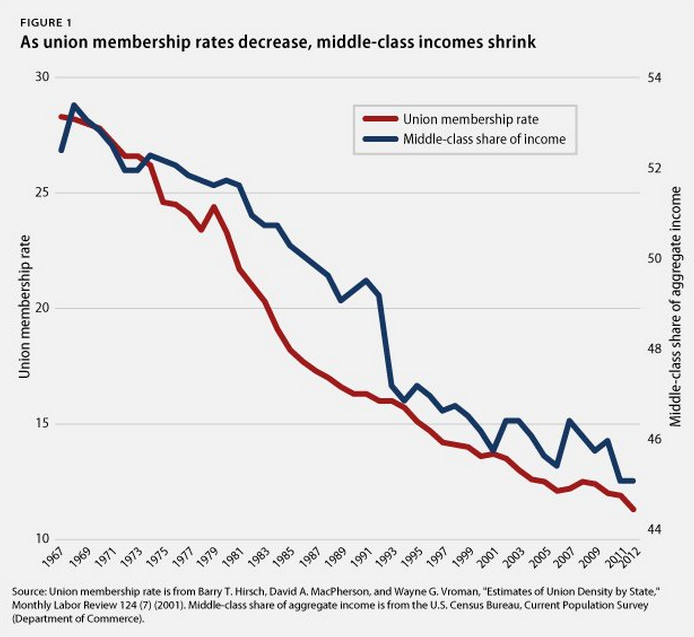 The decline of membership in Unions coincides with the decline in middle-class income:
The decline of membership in Unions coincides with the decline in middle-class income:
The fact is, unions raise the wages and benefits for everyone in this country, even non-union workers. The non-union competitors must keep their wages fair because if they don’t, two things will happen the non-union company does not want; first the employees will start to leave, and then the remaining employees will start reaching out to Unions to organize them. We see this all the time. Companies do not want either to happen, so they try to keep their employees just happy enough to avoid it. But if there were no Unions, there would be no threat. Then wages, benefits and overall working conditions would drop.
If you work in a Union job, you are most likely benefiting from higher wages and benefits like paid retirements, paid holidays and the big one these days; paid insurance. Even if you have to pay a little towards some of these things, you are still probably better off than your non-union counterparts. You may not have chosen to work there because it is a Union job, but the reasons that you do work there were more than likely made possible by the very Union you don’t think you need.
I am always amazed when I hear someone say to me, “I don’t need the Union; I do my job!” That may be true, you may be the best at your job and never do anything wrong, but the Union still helps you in ways you probably are not aware of or are thankful for because they have always been there for you so you feel that’s just normal.
The Anti-Discrimination Provision Of The Immigration And Nationality Act (INA)
Article Written By the IBT
The U.S. Department of Justice, Civil Rights Division has an office dedicated to ensuring that employers are not discriminating against work-authorized individuals based on their national origin or immigration status. It is unlawful to fire or refuse to hire certain workers because of where they are from or because they are not U.S. citizens. The law also protects workers where employers discriminate against them by asking for too many work-authorization documents or by rejecting valid documents.
Q: How can I tell if an employer is violating the law?
A: An employer may be discriminating based on citizenship or national origin in employment if the employer:
-
Specifically, ask a worker for a “green card.”
-
Asks certain workers for more documents than needed to complete the I-9 form.
-
Rejects valid work authorization documents.
-
Refuses to allow certain workers to begin working based on a name and Social Security number no-match.
-
Refuses to hire refugees and asylees because they don’t have Social Security numbers or green cards.
-
Only hire U.S. citizens (unless that policy is specifically required by law).
-
Asks certain workers for work authorization documents before offering them jobs.
-
Fires work-authorized workers for lying about their prior undocumented status, but has not fired other workers for lying about different aspects of their background.
Q: What about E-Verify?
A: An employer’s use of E-Verify may be discriminatory if the employer treats workers differently during the E-Verify process based on national origin or citizenship or immigration status, such as if it:
-
Runs certain workers through E-Verify before offering them jobs.
-
Asks certain workers to run themselves through E-Verify’s Self Check.
-
Uses E-Verify to check only some, but not all, new workers.
-
Refuses to allow certain workers to contest “tentative nonconfirmations” (TNCs).
-
Refuses to allow certain workers to work while contesting TNCs.
Q: What should I do if I think I or someone I know has been discriminated against in hiring or firing based on national origin or citizenship status?
A: Call the Office of Special Counsel for Immigration Related Unfair Employment Practices (OSC) at the Civil Rights Division of the U.S. Department of Justice on its Worker Hotline at 1-800-255-7688, 9am-5pm, E.S.T. (TTY for the hearing impaired: 1-800-237-2515).
You do not have to provide your name, and telephone interpreters are available in many languages as needed. It is unlawful to intimidate, threaten, or retaliate against anyone for contacting the Hotline, assisting in any way in an investigation, or filing a charge with OSC.
For more information, to obtain outreach materials or a charge form, or to learn about OSC’s new worker webinars call the Hotline or visit http://www.justice.gov/crt/about/osc
